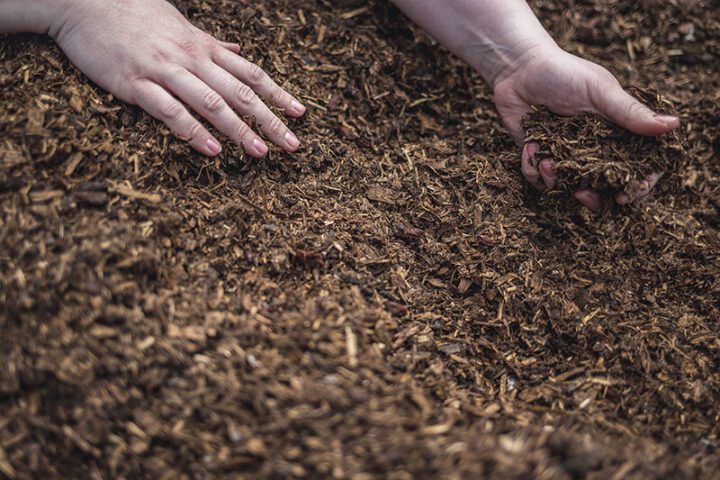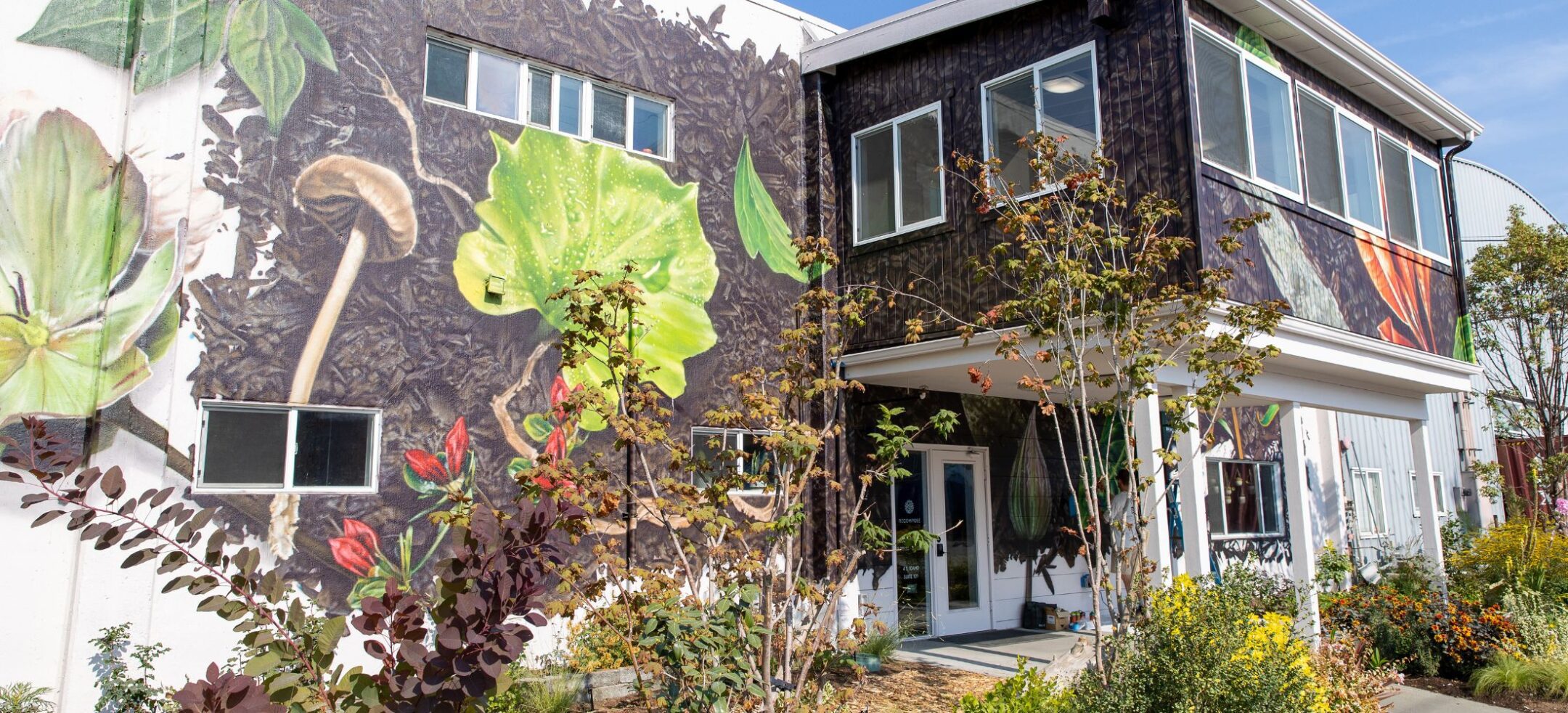Recompose 101: In-Person Tour
Schedule a tour to visit the first human composting company in the world
In-Person Tours
These experiences offer a unique opportunity to tour Recompose within a community framework. You’ll see Recompose’s ceremony and community spaces as well as a portion of the vessel array in the Greenhouse, where human composting takes place.
During the 30-minute walk-through you’ll learn about our history, values, goals, and the Recompose human composting process. The tour concludes with a 30-minute seated session where you’ll have the chance to ask questions and learn from others’ inquiries, too. Tours are free and space is limited to 25 people.
Note: If you’re registering for another person, please sign up for each person with a distinct name and email. That helps ensure we have an accurate count of attendees. Thank you.
Interested in a small group tour? If you’re with a religious or health care organization, senior living community, garden club or similar, and would like to schedule a tour for 15-35 people, please email us at outreach@recompose.life.
Not able to visit us in Seattle?
That’s okay, we offer virtual tours, too.
Common Questions about Human Composting
-
Human composting is the transformation of a human body into soil. Recompose places each body into a stainless steel vessel along with wood chips, alfalfa, and straw. Microbes that naturally occur on the plant material and on and in our bodies power the transformation into soil.
Over the next five to seven weeks, the body inside the vessel breaks down thanks to the natural action of the microbes. The soil is then removed from the vessel, screened for non-organic items such as hip replacements or stents, and allowed to cure for an additional three to five weeks.
Once the process is complete, the soil can be used on trees and plants, or donated to conservation efforts. Each body creates about one cubic yard of soil.
Watch Recompose Founder and CEO, Katrina Spade, describe how human composting works during her 2023 talk at the End Well Conference.
Explore more
Check out our infographic that shows the steps of the Recompose human composting process.
-
The Recompose human composting process creates approximately one cubic yard of soil per body which is roughly 3 x 3 x 3 feet. This amount fills the bed of most pickup trucks and weighs approximately from 500 pounds to over 1,000 pounds. The process begins with three cubic yards of plant material.
Families can take some or all of the soil home once the process is complete, and donate what does not go home to conservation efforts. Learn more about how to consider your soil options.
-
Human composting saves carbon through a combination of factors. The process uses 87% less energy than cremation, which typically uses fossil fuel to create sustained heat of over 1,600 degrees Fahrenheit for 3 to 4 hours.
No casket or coffin is used during human composting, nor is a concrete grave liner required – all items that add to the carbon footprint of a death.
When human composting transforms the organic material of our bodies, the carbon is captured, or sequestered, in the soil created. Rather than being released as carbon dioxide gas through exhaust during a cremation or as a hydrocarbon gas like methane, the carbon contained in each body returns to the earth. As the nutrients in the compost are used over time by the plants in contact with it, the impact of a person’s choice for human composting continues to expand exponentially.
-
Bones and teeth do not fully break down in the human composting process due to their mineral composition. Similar to other forms of death care, equipment is needed to reduce the bones.
Microbes do the primary work of human composting. By controlling the ratio of carbon, nitrogen, oxygen, and moisture, human composting creates the perfect environment for microbes and beneficial bacteria to thrive. To create that environment, Recompose uses a mixture of plant materials carefully calibrated and tailored to each body.
Recompose staff rotate each vessel at several points during the process to ensure thorough aeration and exposure to resources for the microbes.
Bones are reduced to a fine powder by equipment after the soil is removed from the Recompose vessel. Staff also screen for non-organics such as implants, which are recycled whenever possible. The reduced bone is added back to the compost to help balance the compost nutrients and make minerals available to plants. It continues to break down and return to the environment over time.
Recompose follows all compost-testing regulations put forth by the Washington State Department of Licensing and the Board of Health. The pH range of Recompose compost is usually between 6.5 and 7, which is ideal for most plants.
Learn more about the human composting process.

Sample compost, not created from a human body, that has been through our composting process. -
You can choose Recompose for human composting from most states. You can contact our staff at (206) 800-8733 or precompose@recompose.life and we can help you arrange for transport.
Most clients that come to us from another state work with a funeral home in their area to arrange for transport. This funeral home will pick up a body at the place of death and arrange for transport to Recompose. When you contact a funeral home, we suggest starting the conversation by saying something like, “I am looking to have my body transported to the Seattle area. I have chosen a funeral home called Recompose to handle my death care services. Can you help me make arrangements?”
In most instances, families can also transport their person to Recompose in their personal vehicle with the correct permits. If you are interested in this option, please contact us and we’re happy to help.
Please note: Bodies that come to Recompose must not be embalmed. While most funeral homes are experienced with transporting bodies, they may not yet have heard of human composting or have experience with this kind of transport. If you have any questions or need help finding a transporting funeral home, Recompose staff can help you.
Our article, How to Arrange for Transport to Recompose, also has information to help you.










